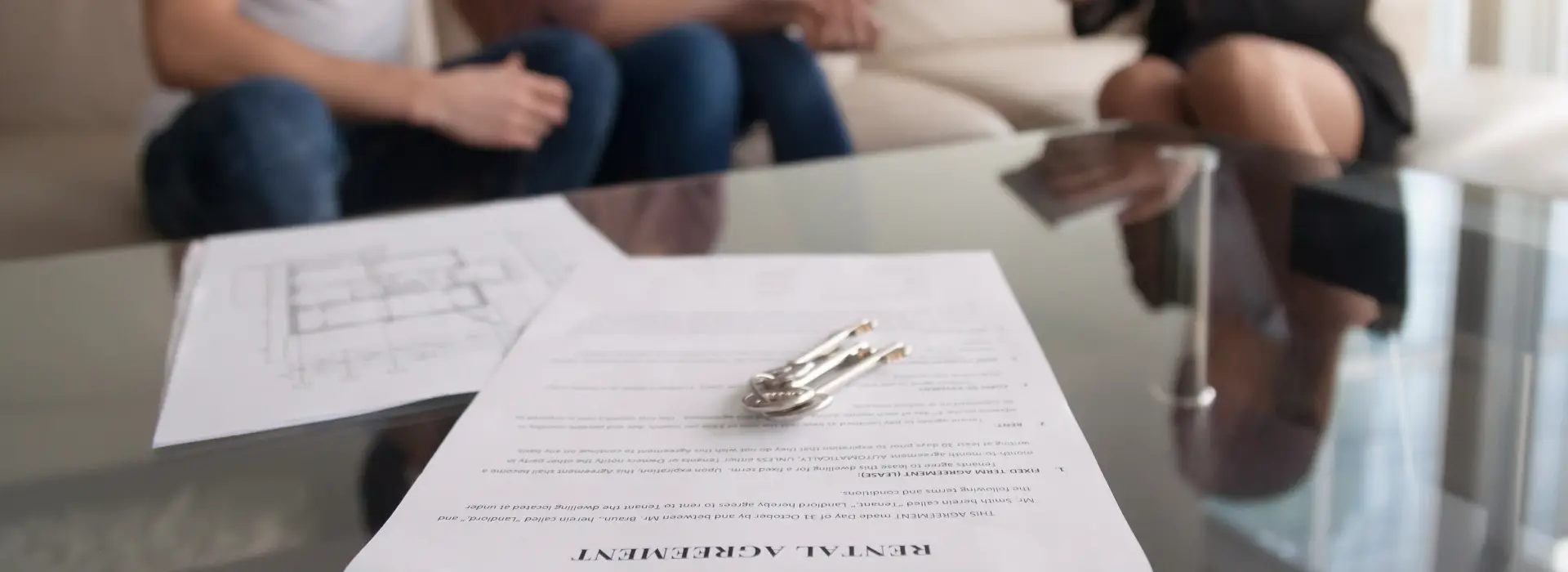


Sometimes when you buy a new property, you’ll find that it comes with tenants already installed. If you’re buying as an investment, this can be an extra complication to an already complicated process.
Don’t worry though, with the right information you can navigate your new purchase and sort out your new property exactly how you want.
Simply put, a tenanted property has people renting, called tenants. This comes with its set of own responsibilities and obligations. Your tenants will generally have a lease and it may mean that you can’t move in straight away.
If the property has been marketed towards investors then there’s a good chance it will be tenanted and you can sometimes find it listed in the real estate ad. It may also become clear that the property you’re looking at is being rented if you attend an open inspection. Otherwise, the agent selling the property might make you aware of the situation.
If you suspect that the property might be tenanted, don’t be afraid to ask the agent or the sellers. It will also allow you to ask further questions to make sure you understand the situation properly. Something that can come in handy regardless of whether the property is tenanted or not.
Ideally, you should think about why you are buying the property before you commit to buying. Knowing whether you are planning to move in straight away or use the property as an investment will let you know how best to proceed during the negotiations and after you’ve bought it.
Tenanted properties will usually, if not always, come with a lease. This is the agreement between the landlord, which will soon be you, and the tenants or renters.
In short, yes. Leases follow the property, not the owners. So, if the property you buy has tenants and a lease then that becomes your responsibility when you settle. It’s a good idea to make sure you understand the current lease that is being used by the seller before you purchase the property.
Generally, they will come in one of two forms. Periodic or fixed term.
If you are planning to move into the new property then the tenants must be given a ‘Notice to Vacate’. The notice can be given by the seller before you have bought the property or by you once the sale has been settled.
Once the tenants receive a notice to vacate, they have up to 60 days to move out. So if you want to move in immediately, then make sure that the seller gives the tenants a notice at least 60 days before you settle.
A fixed-term lease is a bit more complicated. These are lease agreements for a specific length of time and the tenants have the right to stay until it ends. In some cases, you can negotiate privately with the tenants to end the lease early but it’s important to understand that you cannot force them to leave.
While it’s not necessary to get a property manager, it generally makes the process much easier. Property managers will organise everything for you. They’ll go over the current lease, handle communication with the tenants and organise the paperwork for you.
Usually, the property will already have a property manager and if you think they are doing a good job you will likely be able to hire them to continue to manage the property.
If you aren’t going to use a property manager, then you will be responsible for all the details of the tenancy. Start by arranging with the current property manager to get copies of the tenancy agreement, any lease extensions, inspections, the tenancy ledger, manuals and keys. It will also be your responsibility to contact the tenants and advise them of the settlement and your contact details.
It will then be your job to organise the maintenance of the property and any updates on rental payments (such as the new account that the rent will be paid into).
Regardless of whether you are using a property manager or self-managing, it’s a good idea to get landlord insurance for the property. Like most insurance, this will cover you if any issues come up. It will cover the property itself as well as some of the contents.
Depending on which landlord insurance you use, you may also find that you will be covered for theft and rent defaults. As always, make sure to do your research and know what you’re covered for.
Any bonds that are paid by the tenants will stay in place when you take over the lease. The only thing you will have to do is make sure to update the ownership and management details to the appropriate rental tenancy authority. These will change depending on your state or territory so check which authority is used in yours and lodge the changes.
Yes. Even if you buy a tenanted property, you can still be eligible for a First Home Buyers Grant. You have 12 months to move into your new property so you can wait for any leases to end and then move in. Once you’ve moved in, the property must be your primary residence for 12 months.
Buying a tenanted property can throw some extra complications your way, but with the proper preparation and research, you can make it work for you. Ask lots of questions and make sure that you take the time to understand what you have signed up for. And if you’re worried, sit down with the sellers or the current property manager and have a conversation.
|
Bill has over 26 years of experience working in the finance industry. He has worked across a number of different businesses including Home Loans, Personal Loans, Collections and Insurances. Bill's passion is to utilise his knowledge and experience in the industry to assist clients in meeting their financial goals. |